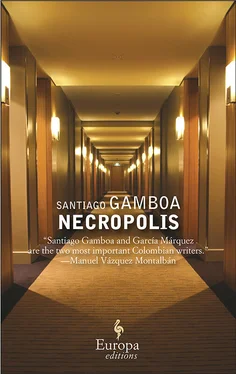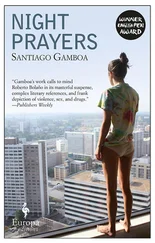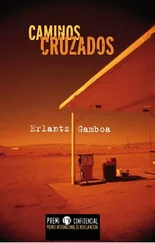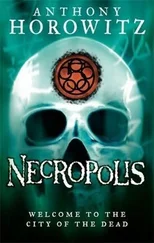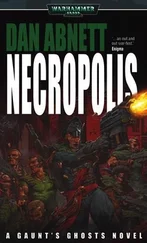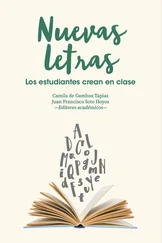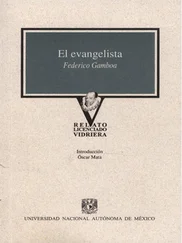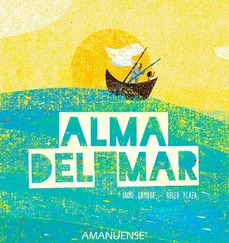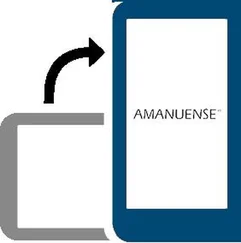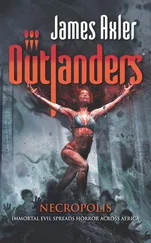That was when I finally left my cabin, with my hands behind my head. Before they could throw me to the ground, the detective stopped them, and said, let him go, he can help us. He put his arm around my shoulders and said, now then, José, your name is José, isn’t it, now why don’t you tell me where the hell the secret passages and hiding places are in this house, I don’t want to have to pull it to pieces but that’s exactly what I’ll do if I don’t find him in, let’s say, an hour, do I make myself clear? Yes, detective, but believe me, I don’t know any passages or hiding places, this house was built long before the Ministry took it over.
They put me in the van with the others and sat me down next to Jessica. Where is he? I whispered, and she said in my ear, I don’t know, he ordered us to leave and said, I’ll stay here and pray to the Lord, you go, and that was the last I saw of him.
This happened twelve years ago, my dear friends. The police never found Walter, dead or alive, despite a thorough search that involved the blueprints of the complex, scanning devices, drills, and so on. All the furniture was carefully taken to pieces, but nothing was found. They questioned Jessica and me for weeks, but in the end they had to let us go; the bodyguards and Jefferson, on the other hand, they put back in prison.
So it was that one day Jessica and I met on Sylvester Road, soon after we were released, and I said, what do we do now? She replied that she wouldn’t do anything. I know Walter’s alive and will look for me, so I’ll wait for him. I looked her in the eyes and saw again the young woman from all those years earlier. I gave her a kiss on the cheek and walked away, saying: if he comes back, he’ll make sure we all get together again.
I didn’t know what to do or where to go, but then remembered the bank account, so I went to the branch to withdraw a few dollars and have a bite to eat while I cleared my mind. At the window a surprise was waiting for me: the balance was three million dollars! Walter, what a fucking bastard you are, what a piece of shit. I took out five thousand bills. A little way along the street there was a not too dirty hotel, the Stardust Inn. I went in and took a room. I asked for a chicken sandwich and a Diet Coke, what could I hope for? I looked at the scars on my veins and thought, now would be the perfect time to do it, but maybe it’d be better to wait until morning. Besides, the sandwich was good. I took out the bills and laid them out on the bedspread, took my clothes off and filled the bathtub. I immersed myself in the water with the can of Coke and took a few sips. Outside, night was falling. Then I closed my eyes and went to sleep.
José Maturana slumped forward across the table, with tears in his eyes, and was immediately buried beneath an avalanche of applause. It was strange to see him with his long gray mane of hair, his unkempt beard and his tough guy tattoos, so moved by his own words; he stood up, took a few steps toward the proscenium and gave a simple bow that earned him more applause, in fact a standing ovation. I was impressed and, to say the least, inhibited; could my text hope to arouse a fraction of this enthusiasm? of course not. . mine was supposed to last no more than twenty minutes, the time that, according to the form, every speaker was allotted, but Maturana had spoken for nearly an hour, although I had not kept count. What was more, his talk had not been read but improvised, which was an amazing feat, something only a real professional could have achieved. I again looked for his biography in the form that the ICBM had given out at the door, but the information was the same, and extremely concise: nothing on his childhood and nothing on the years since the end of the Ministry of Mercy. There was not even any mention of something as simple as his country of residence, was he still living in Miami or somewhere else in the United States? The dossier mentioned that he had published other books under a variety of pseudonyms, and there was no photograph.
I left the lecture hall trying to digest what I had heard and saw that there were other activities going on in the side rooms. In one, the poet from Benin and president of the Circle of African Poets, Joseph Olalababa Jay, was speaking; at the end of the corridor, in an adjoining hall, the round table Concentric Circles of Modernity was in progress, chaired by Professor Aparajit Chattoppadhyay from Jawaharlal Nehru University in Delhi. But I kept going. What with the ravages of the previous night’s alcohol and Maturana’s words, my head was overloaded; better to look for a place to be alone, in silence, so I went down to one of the inner gardens of the hotel.
It was like stepping back in time.
The path that wound past the bushes was of sandstone, like many of the buildings in this part of the city. I sat down on a bench and watched a robin peck at a puddle of water, then a dragonfly. I remembered my days in the mountains, my long, long soliloquies with the stones, the dragonflies, and the robins. There was a certain language in things, a language that had spoken to me in those days. Now I tried to hear it again, but my ears were as hard as stone. Standing by one of the ornamental fountains was a short man with a gray beard. As I passed him, he turned and said, are you the writer? His accent sounded familiar so I asked, Kaplan? Yes, he said, I’m Kaplan, pleased to meet you, it’s nice to find a fellow countryman in such a remote place, come, let’s walk together for a while, I think there are orchids along that path.
The war that is destroying this place has deep roots, he said, so unlike our sad war. I told him that I had been outside the country for a long time and that I had been ill, but Kaplan replied, it isn’t necessary to keep up to date, it’s the same war that’s been going on for forty years, or is it fifty? Things never change: boundless ambition, rivers of blood, hatred, ignorance; I wanted to know if he had been a direct victim, and he said, come, let’s carry on as far as that fountain and I’ll tell you the story.
My family is from the city of Armenia, in the department of Quindío. We’re Jews. For a hundred years we’ve been in the clothing and wholesale fabric business, and we’ve done well, with branches in Medellín, Pereira, Cali, and Bogotá. Kaplan’s Tailors, maybe you’ve seen some of our advertisements. Three hundred employees and a seven-story building in Armenia. A hundred stores throughout the country. The work of four generations, because the first Kaplan arrived in Colombia in 1894, from Polish Galicia; he escaped to avoid military service and got on a ship he was told was going to America. South America, as it turned out. Seven years later, he went back to Poland to fetch his wife, and with her he opened his first tailor’s shop. Three generations have passed since then, we’re Colombians. The problem started in the middle of the year 2001. The paramilitaries of Quindío started sending us messages: we had to pay them a large sum of money every month in return for protection; we said no, no thanks, we’re peaceful people, we provide work and progress, we don’t have enemies. We told them we didn’t think it was right to give money to murderers. We’re Jews and we can’t deal with murderers. A family meeting was called, us three brothers and our brother-in-law, and we confirmed our decision; there will be consequences, we said, but we just have to keep firm; they asked for money again and again we said no. What they were asking us for we spent on bodyguards and bulletproof cars. A couple of months went by until they put a bomb in one of our stores in Pereira, an assistant was killed, and three loaders were seriously wounded. That night they called again and said, you see? you need protection, but we refused. The following month, they attacked my brother Azriel on the highway to Medellín, fortunately he was in a bulletproof car with three bodyguards. One of the paras died, and that was the start of the war. The family met again and we said, we need to be stronger, redouble our security, buy weapons, be prepared. Our brother-in-law went farther: I have contacts in Israel, they can help us, but I said: let’s wait.
Читать дальше
